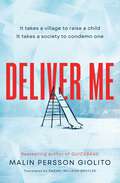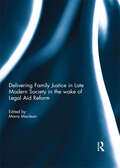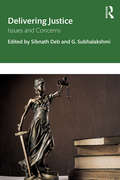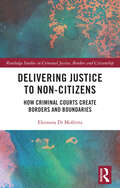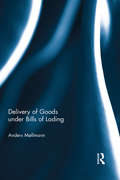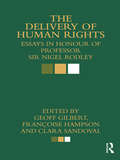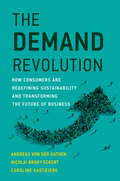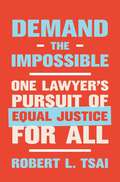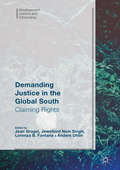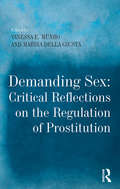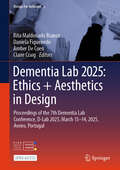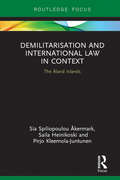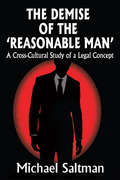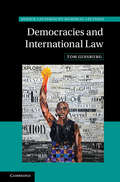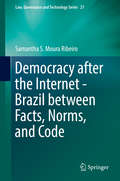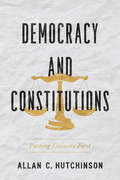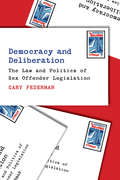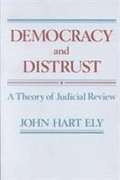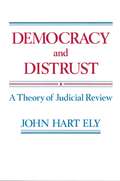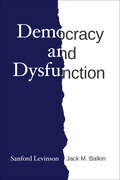- Table View
- List View
Deliver Me
by Malin Persson GiolitoFrom the internationally bestselling author of Quicksand, a brilliant, gut-wrenching story of childhood friends torn apart by gang violence and class differences. Dogge is from affluent Rönnviken in Stockholm. Billy lives in the concrete towers of Våringe, a few hundred yards across a highway but a world apart. They met as six-year-olds at Rönnviken&’s playground and have been unlikely best friends ever since. From the outside, Dogge looks privileged: he lives in a large home and there is plenty of money—at first. But his parents are addicts whose negligence becomes a form of abuse. Meanwhile, Billy&’s family are poor first-generation immigrants unable to escape the no-go zone where they live. But their cramped apartment is nonetheless a bastion of love. When gangs tighten their grip on Våringe, a ruthless small-time boss seeks recruits and both Dogge and Billy become runners by the time they&’re twelve. Fast cash, easy access to drugs, and the dream of gaining status draw them in. But when Billy wants to leave the gang and finds himself trapped, the boys must face the violent rules of the adult game they tried to play.When children commit horrible crimes, who bears the responsibility? With piercing prose and a breathless sense of urgency, Deliver Me is at once a poignant portrayal of the power of friendship and a shattering depiction of what happens when society fails to protect those that need it most. What does justice mean for these lost children and is the law capable of delivering it?PRAISE FOR MALIN PERSSON GIOLITO: 'Sensitive, moving and absorbing' Marcel Berlins, The Times 'This is the evolution of Scandinavian crime, in more ways than one' Fredrik Backman 'Compelling and brutally candid . . . superbly told' Daily Mail 'Suspenseful and addictive' Real Crime 'Splendid' Kirkus Reviews 'Haunting and immersive' Publishers Weekly
Delivering Family Justice in Late Modern Society in the wake of Legal Aid Reform
by Mavis MacleanLegal aid for family cases in private law, mainly divorce and separation, where the state is not directly involved as it is in public law cases where there are issues of domestic violence or neglect or abuse of children, came to an abrupt end together with help for welfare and immigration cases on April 1 2013 when the Legal Aid Sentencing and Punishment of Offenders Act (LASPO) came into effect. This book presents an account of the wide ranging problems which the researchers and practitioners expected to ensue. Sadly, their fears have been realised in many areas of legal help and advice. The National Audit Office was to take the view in 2014 that although the Ministry of Justice had succeeded in making considerable savings in the cause of austerity that they had failed to investigate or understand the impact of these cuts on the individuals concerned and society as a whole. This book was previously published as a special issue of the Journal of Social Welfare and Family Law.
Delivering Justice: Issues and Concerns
by Sibnath Deb; G. SubhalakshmiThis book critically analyzes emerging issues and challenges in delivering timely justice to common people. It brings a wide range of contemporary and relevant issues relating to the gross violation of human rights and presents situation-based evidence from, and first-hand experiences of, behavioral, social and legal professionals. It deals with themes such as holding administrations accountable and securing justice, challenges for the judiciary in the early disposal of cases, challenges to the forensic community, green federalism and environmental justice, current threats to human rights, ethics in the criminal justice system and honor killing from socio-cultural perspectives. Topical and comprehensive, this book will be an excellent read for scholars and researchers of political studies, legal studies, human rights, psychology, behavioural studies, political sociology, sociology, development studies, governance and public policy, environmental studies and South Asian studies. It will also interest policymakers, nongovernmental organizations, activists and professionals in the field.
Delivering Justice to Non-Citizens: How Criminal Courts Create Borders and Boundaries (Routledge Studies in Criminal Justice, Borders and Citizenship)
by Eleonora Di MolfettaHow does justice for non-citizens look like? This book provides a nuanced cross-section of how criminal courts deliver justice to non-citizens, investigating rationales and purposes of penal power directed at foreign defendants. It examines how lack of citizenship alters the contours of justice, creating a different system oriented at control and exclusion of non-members. Drawing on ethnographic research in an Italian criminal court, the book details how citizenship and national belonging not only matter, but are matters reproduced, elaborated, and negotiated throughout the judicial process, exploring the implications of this development for the understanding of penal power and the role of criminal courts.Set in the context of the growing intersection between migration control and penal power, Delivering Justice to Non-Citizens explores whether and how instances of border control have seeped into judicial practices. In doing so, it fills a significant gap in the scholarship on border criminology by considering a rather unexplored actor in the field of migration studies: criminal courts. Based on a year of courtroom ethnography in Turin, Delivering Justice to Non-Citizens relies on interviews with courtroom actors, courthouse observations, analysis of court files, together with local media analysis, to provide a vivid image of judicial practices towards foreign defendants in a medium-size criminal court. It considers and balances the distinctive traits of the local context with ongoing global processes and transformations and adds much needed insights into how global processes impact local realities and how the local, in turn, adjusts to global challenges. Through instances of everyday justice, the book calls attention to how migration control has silently seeped into the judicial realm.The book will be of interest to students and academics in sociology, criminology, law, penology, and migration studies. It will also be an important reading for legal practitioners, magistrates, and other law enforcement authorities.
Delivering Police Services Effectively (Advances in Police Theory and Practice #27)
by Garth den HeyerThis book addresses the various strategies that are available to police management, such as consolidation, regionalization, and amalgamation of police agencies; new public management (NPM); enhanced performance management; civilianization; and organizational restructuring. It fills the gap in the research as to how police agencies have reacted to the environmental and fiscal changes since the 1980s. The book examines the strategies employed and the effect on police and their delivery of service.
Delivery of Goods under Bills of Lading
by Anders MøllmannProbably the core characteristic of a bill of lading is that the original bill of lading must be presented at the port of destination for a consignee to be entitled to delivery of the goods and for the carrier to get a good discharge of its delivery obligation by delivering the goods to said consignee. This notion is accepted virtually worldwide, but the more precise content of the "presentation rule" differs from jurisdiction to jurisdiction. Furthermore, and of importance, the legal basis establishing the "presentation rule" differs. With the technological advances in maritime transport as well as in communications technology and the emergence of more complicated trading patterns, a system where a specific tangible piece of paper issued at the port of loading has to be presented at the port of discharge to obtain delivery of the goods seems almost archaic and can obviously create problems. Thus, in practice very often – especially in some trades such as the oil trade – the bill of lading is not available at the port of discharge when the ship is ready to deliver the cargo. The book will first analyse the "presentation rule", its finer contents and its legal basis. It will then go on with (legal) analyses of three developments and responses to the problems that the bill of lading system gives rise to in practice, viz. the commercial, the international legislature’s, and the technological response. The commercial response analysed here consists of contractual exemption or limitation clauses in the bill of lading set up as a defence against claims for misdelivery. The international legislature’s response denotes the adoption of the Rotterdam Rules which as the first international convention on carriage of goods by sea includes elaborate rules on delivery of the goods. Finally, the technological response denotes the possibility of using electronic (equivalents of) bills of lading. The analyses will include a comparative approach examining both English and Scandinavian law to elucidate the issues with greater clarity.
The Delivery of Human Rights: Essays in Honour of Professor Sir Nigel Rodley
by Geoff GilbertThe Delivery of Human Rights reflects on two overlapping issues in international human rights law: how can existing norms be better implemented and effected, and how can other branches of international law or other international actors be used so as to provide an improved delivery of those norms. Rather than simply looking at the content of the rights, this book will also explore how the framers’ intention that individuals benefit from the norms can be achieved. The book is written and published in honour of Professor Sir Nigel Rodley KBE. It celebrates his career as an academic and practitioner in the area of human rights. Professor Rodley acted as the UN Special Rapporteur on Torture from 1993 to 2001 and is currently a member of the UN Human Rights Committee. He is also a member of the International Commission of Jurists. Since 2001 he has been a Member of the UN Human Rights Committee, established under the International Covenant on Civil and Political Rights. In 1998 he was knighted in the Queen's New Year's Honours list for services to Human Rights and International Law and in 2000 he received an honorary LLD from Dalhousie University. He is Professor and Chair of the Human Rights Centre, University of Essex, having taught there since 1990. The contributors to this volume are notable experts in the area of human rights law and include Paul Hunt, Malcolm Evans, Michael O’Flaherty and David Weissbrodt. The book addresses such topics as the Role of Special Rapporteurs, how can the absolute prohibition of torture be properly implemented, Responsibility to Protect, non-state actors, including businesses, and human rights.
The Delivery of Regenerative Medicines and Their Impact on Healthcare
by Catherine D. Prescott Dame Julia PolakNow that prohibitions against stem cell research are relaxing, it is time for the field to move forward with the advances that promise to eliminate so much human suffering. However, it would be naive to ignore the fact that regenerative medicines pose a whole new set of challenges to an industry sector that for decades has geared itself to the deve
The Demand Revolution: How Consumers Are Redefining Sustainability and Transforming the Future of Business (Management on the Cutting Edge)
by Andreas von der Gathen Nicolai Broby Eckert Caroline KastbjergHow consumer desire for sustainability is powering the first demand-driven, transformative megatrend—and how business leaders can make the most of this important moment.Sustainability is rocking the business world as profoundly as any global trend of the past, from electrification to digitalization. But unlike previous revolutions, this one is being driven by consumers, for whom environmentally sound practices matter as much as price, quality, and brand. In The Demand Revolution, Andreas von der Gathen, Nicolai Broby Eckert, and Caroline Kastbjerg offer a strategic framework for winning these consumers—and taking advantage of the vast commercial opportunity presented by sustainability as the first demand-driven, transformative megatrend.The first movers in the Demand Revolution will be able to create enduring competitive advantages and high entry barriers built around redesigned business model ecosystems and customer loyalty, the authors explain, but this will require a critical adjustment in thinking and approach. Companies, first of all, have to catch up with consumers, who see themselves on a demand curve far beyond what companies currently perceive. Business leaders must shift their focus from the cost of sustainability to its potential for generating growth and long-term profits. This, in turn, means recognizing that the classic adoption curves for innovations—and the strategic playbooks derived from those insights—no longer apply. The Demand Revolution shows business leaders how to look beyond easy fixes and incremental outcomes and instead pursue high-risk, high-reward moves geared toward the source of exponential growth: the world&’s consumers.
Demand the Impossible: One Lawyer's Pursuit Of Equal Justice For All
by Robert L. TsaiHow four Supreme Court cases in recent years—all argued and won by one indomitable lawyer—are central to the pursuit of equal justice in America. Stephen Bright emerged on the scene as a cause lawyer in the early decades of mass incarceration, when inflammatory politics and harsh changes to criminal justice policy were crashing down on the most vulnerable members of society. He dedicated his career to unleashing social change by representing clients that society had long ago discarded, and advocated for all to receive a fair trial. In Demand the Impossible, Robert L. Tsai traces Bright’s remarkable career to explore the legal ideas that were central to his relentless pursuit of equal justice. For nearly forty years, Bright led the Southern Center for Human Rights, a nonprofit that provided legal aid to incarcerated people and worked to improve conditions within the justice system. He argued four capital cases before the US Supreme Court—and won each one, despite facing an increasingly hostile bench. With each victory, he brought to light how the law itself had become corrupted by the country’s thirst for severe punishment, exposing prosecutorial misconduct, continuing racial inequality, inadequate safeguards for people with intellectual disabilities, and the shameful quality of legal representation for the poor. Organized around these four major Supreme Court cases, each narrated in vivid and dramatic detail, Tsai’s essential account explores the racism built into the criminal justice system and the incredible advancements one lawyer and his committed allies made for equal rights. An electrifying work of legal history, Demand the Impossible reveals how change can be won in even the most challenging times and how seemingly small victories can go on to have outsized effects.
Demanding Justice in The Global South
by Jean Grugel Jewellord Nem Singh Lorenza Fontana Anders UhlinThe politics of claiming rights and strategies of mobilisation exhibited by marginalised social groups lie at the heart of this volume. Theoretically, the authors aims to foster a holistic and multi-faceted understanding of how social and economic justice is claimed, either through formal, corporatist or organised mechanisms, or through ad hoc, informal, or individualised practices, as well as the implications of these distinctive activist strategies. The collection emphasises both the difficulties of political mobilisation and the distinctive methods employed by various social groups across a variety of contexts to respond and overcome these challenges. Crucially, the authors' approach involves a conceptualisation of social movements and local mobilisation in terms of the language of rights and justice claims-making through more organised as well as everyday political practices. In so doing, the book bridges the literature on contentious politics, the politics of claiming social justice, and everyday politics of resistance.
Demanding Sex: Critical Reflections On The Regulation Of Prostitution
by Marina Della GiustaInterrogating supply/demand from an inter- and multi-disciplinary perspective, this collection broadens engagement beyond the routine analysis of the locus of violence in prostitution and the validity of the prostitute's consent. A focus on the supply/demand dynamic brings into play a range of other societal, economic and psychological factors such as the social construction of sexuality, the viability of alternative choices for prostitutes and clients, and the impact of regulatory regimes on the provision of sexual services. The factors which underlie each component of the supply/demand dyad are also studied and an examination is made of their dynamic interrelation. The collection emphasizes the importance of rendering policy makers alert to the evidence emerging from empirical studies conducted in different fields of enquiry, in the hope of moving beyond polarity and politics at the local, national and international level.
Dementia Lab 2025: Proceedings of the 7th Dementia Lab Conference, D-Lab 2025, March 13–14, 2025, Aveiro, Portugal (Design For Inclusion #5)
by Claire Craig Rita Maldonado Branco Daniela Figueiredo Amber De CoenThis is an open access book. It gathers revised and selected contributions to the 7th Dementia Lab Conference, D-Lab 2025, held on March 13–14, 2025, in Aveiro, Portugal, reporting on innovative research aimed at improving the lives of people with dementia, their loved ones, and their caregivers. This edition addresses the theme of ethics + aesthetics in design. Ethics emphasize justice, advocate for inclusive, person-centred practices, and challenge societal stigmas. Aesthetics, beyond beauty, focus on sensory and emotional engagement, which becomes increasingly significant as dementia progresses. Together, these principles guide innovative design approaches that enhance care, identity, and connection. Being organized into three themes, Designing with People with Dementia, Including Design in Dementia Care, and Design within Cultures of Care, this collection highlights research on participation, technology, and the cultural dimensions of care. It also demonstrates the key role of design in creating products and environments that embrace aesthetic value and is expected to challenge stigmas and unrealistic assumptions about people living with dementia
Demilitarization and International Law in Context: The Åland Islands (Routledge Research in International Law)
by Sia Spiliopoulou Åkermark Saila Heinikoski Pirjo Kleemola-JuntunenThe demilitarisation and neutralisation of the Åland Islands is a confirmation of, and an exception to, the collective security system in present-day international affairs. Its core idea is that there is no need for military presence in the territory of the islands and that they are to be kept out of military activities. A restricted use of military force has a confidence building effect in cases where competing interests may be so intense that banning the very presence of military force remains the only viable option. The regime of the Åland Islands is the result of pragmatic and contingent political compromises. As such, the case of the Åland Islands offers an alternative trajectory to the increased militarisation we witness around the world today. Through parliamentary and archival materials, international treaties and academic works, the authors examine the legal rules and institutional structures of the demilitarisation regime. In this process they reassess core concepts of international law and international affairs, such as sovereignty and security, and introduce a theoretical view on the empirical case study of the Åland Islands. The book covers legal, political and policy discursive aspects of demilitarisation, international co-operation, defence and security matters around the Baltic Sea with a broader European and global relevance. It can be a source of inspiration for all those in search of constructive efforts that can address territorial disputes and security challenges.
The Demise of the Reasonable Man: A Cross-cultural Study of a Legal Concept
by Michael SaltmanJudges in most societies often resort to resolving disputes by means of applying a criterion of reasonableness. In The Demise of the'Reasonable Man' Michael Saltman explores the ways in which reasonableness varies from one legal culture to another, defined by the relative presence or absence of centralized political power. In non-politically centralized societies, Saltman says, judges seek meanings underlying human behavior, and try to place reasonableness within a societal and cultural context. This is possible because primitive societies are relatively homogenous in their values and tend towards consensus when determining what constitutes reasonable behavior. In contrast, modern judges resort to standards of reasonableness only when the legal standard is unclear. Saltman contrasts judges in politically centralized societies, who, in the absence of such consensus, have the authority to determine, on the basis of that authority, what constitutes reasonableness. This rich volume references case studies drawn from ethnographic fieldwork, historical sources, and law reports to demonstrate differences in judicial attitudes toward reasonableness.
Democracies and International Law (Hersch Lauterpacht Memorial Lectures)
by Tom GinsburgDemocracies and authoritarian regimes have different approaches to international law, grounded in their different forms of government. As the balance of power between democracies and non-democracies shifts, it will have consequences for international legal order. Human rights may face severe challenges in years ahead, but citizens of democratic countries may still benefit from international legal cooperation in other areas. Ranging across several continents, this volume surveys the state of democracy-enhancing international law, and provides ideas for a way forward in the face of rising authoritarianism.
Democracy after Covid: Challenges in Europe and Beyond
by Kostas Chrysogonos Anna TsiftsoglouThis book, one of the first of its kind, explores the impact of the COVID-19 pandemic on modern Western democracies from a comparative constitutional law and policy perspective. Through 11 scholarly contributions, it tackles cutting-edge topics for the liberal state, such as emergency legislation, judicial scrutiny of COVID-19 measures, parliamentarism and executive decision-making during the pandemic. The book examines these topics both from a microscopic national constitutional angle, with a focus on European states, and from a macroscopic regional and comparative angle, on par with the American example. The COVID-19 pandemic is thus treated as an international state of emergency that has enabled far-reaching restrictions on essential human rights, such as freedom of movement, freedom of religion or even major political rights, while giving rise to the ‘administrative state.’This edited volume explores each of these pressing themes in this exceptional context and evaluates different liberal states’ responses to the pandemic. Were these responses reasonable, effective and democratic? Or is the COVID-19 pandemic just the beginning of a new era of global democratic backsliding? How can liberal democracies manage similar crises in future? What lessons have we learned? The institutional knowledge gained turns out to be the key for the future of the rule of law.
Democracy after the Internet - Brazil between Facts, Norms, and Code
by Samantha S. Moura RibeiroThis book throws new light on the way in which the Internet impacts on democracy. Based on Jürgen Habermas' discourse-theoretical reconstruction of democracy, it examines one of the world's largest, most diverse but also most unequal democracies, Brazil, in terms of the broad social and legal effects the internet has had. Focusing on the Brazilian constitutional evolution, the book examines how the Internet might impact on the legitimacy of a democratic order and if, and how, it might yield opportunities for democratic empowerment. The book also assesses the ways in which law, as an institution and a system, reacts to the changes and challenges brought about by the Internet: the ways in which law may retain its strength as an integrative force, avoiding a 'virtual' legitimacy crisis.
Democracy and Constitutions: Putting Citizens First (UTP Insights)
by Allan HutchinsonAs things stand, a commitment to weak democracy and strong constitutionalism ensures that a range of elite groups, actors, and institutions – political, economic, intellectual, and legal – hold considerable sway over constitutional matters, leaving less room for the participation of ordinary people. With the continued primacy of liberal constitutionalism, constitutional law has come to represent and facilitate the centrality of judicial power and authority. In Democracy and Constitutions, Allan C. Hutchinson warns against this deference to a legal elite on questions of constitutional meaning. For Hutchinson, an over-reliance on constitutional law, and a lack of attention to democratic politics, keeps people from influencing the moral and political character of society; it saps civic energies and relegates ordinary people to the sidelines. Engaging and provocative, Democracy and Constitutions charts a course away from the elitism of the present and toward a more democratic future, one that re-balances society’s commitment to both democracy and constitutions. Advocating for a strong democracy and weak constitutionalism, this book places ordinary people at the institutional heart of government and politics, arguing that such a re-calibration is better for democracy and for society.
Democracy and Deliberation: The Law and Politics of Sex Offender Legislation
by Cary FedermanSex offender laws include residency restrictions, registration and notification requirements, and post-conviction civil commitment. These laws and regulations impose serious restrictions on the movements of convicted sex offenders. This is controversial because these laws and regulations occur after the sex offender has completed his time in prison. These laws and regulations are intended to have both a deterrent and therapeutic effect. Residency restrictions seek to prevent sex offenders from recommitting their crimes and civil commitment provides psychological services while incarcerated in a forensic facility. Most works on this subject are deeply critical of these laws. Cary Federman takes a more sympathetic approach to sex offender legislation. He focuses on the deliberative intentions of legislators, exploring the limits of judicial review and the rights of interested parties to influence lawmaking. Leaders of these interested parties are usually the parents of children who have been sexually violated and murdered. Critics of sex offender legislation tend to focus on the convicted parties, arguing that their rights have been violated. Democracy and Deliberation asserts that these laws are expressions of the deliberative intentions of lawmakers concerned about public safety—they are thus constitutional, if not always wise.
Democracy And Distrust: A Theory Of Judicial Review
by John ElyThis powerfully argued appraisal of judicial review may change the face of American law. Written for layman and scholar alike, the book addresses one of the most important issues facing Americans today: within what guidelines shall the Supreme Court apply the strictures of the Constitution to the complexities of modern life? Until now legal experts have proposed two basic approaches to the Constitution. The first, "interpretivism," maintains that we should stick as closely as possible to what is explicit in the document itself. The second, predominant in recent academic theorizing, argues that the courts should be guided by what they see as the fundamental values of American society. John Hart Ely demonstrates that both of these approaches are inherently incomplete and inadequate. Democracy and Distrust sets forth a new and persuasive basis for determining the role of the Supreme Court today. Ely's proposal is centered on the view that the Court should devote itself to assuring majority governance while protecting minority rights. "The Constitution," he writes, "has proceeded from the sensible assumption that an effective majority will not unreasonably threaten its own rights, and has sought to assure that such a majority not systematically treat others less well than it treats itself. It has done so by structuring decision processes at all levels in an attempt to ensure, first, that everyone's interests will be represented when decisions are made, and second, that the application of those decisions will not be manipulated so as to reintroduce in practice the sort of discrimination that is impermissible in theory." Thus, Ely's emphasis is on the procedural side of due process, on the preservation of governmental structure rather than on the recognition of elusive social values. At the same time, his approach is free of interpretivism's rigidity because it is fully responsive to the changing wishes of a popular majority. Consequently, his book will have a profound impact on legal opinion at all levels--from experts in constitutional law, to lawyers with general practices, to concerned citizens watching the bewildering changes in American law.
Democracy and Distrust: A Theory of Judicial Review
by John Hart ElyThis powerfully argued appraisal of judicial review may change the face of American law. Written for layman and scholar alike, the book addresses one of the most important issues facing Americans today: within what guidelines shall the Supreme Court apply the strictures of the Constitution to the complexities of modern life? Until now legal experts have proposed two basic approaches to the Constitution. The first, "interpretivism," maintains that we should stick as closely as possible to what is explicit in the document itself. The second, predominant in recent academic theorizing, argues that the courts should be guided by what they see as the fundamental values of American society. John Hart Ely demonstrates that both of these approaches are inherently incomplete and inadequate. Democracy and Distrust sets forth a new and persuasive basis for determining the role of the Supreme Court today.
Democracy and Distrust: A Theory of Judicial Review
by John Hart ElyThis powerfully argued appraisal of judicial review may change the face of American law. Written for layman and scholar alike, the book addresses one of the most important issues facing Americans today: within what guidelines shall the Supreme Court apply the strictures of the Constitution to the complexities of modern life? Until now legal experts have proposed two basic approaches to the Constitution. The first, “interpretivism,” maintains that we should stick as closely as possible to what is explicit in the document itself. The second, predominant in recent academic theorizing, argues that the courts should be guided by what they see as the fundamental values of American society. John Hart Ely demonstrates that both of these approaches are inherently incomplete and inadequate. Democracy and Distrust sets forth a new and persuasive basis for determining the role of the Supreme Court today. Ely’s proposal is centered on the view that the Court should devote itself to assuring majority governance while protecting minority rights. “The Constitution,” he writes, “has proceeded from the sensible assumption that an effective majority will not unreasonably threaten its own rights, and has sought to assure that such a majority not systematically treat others less well than it treats itself. It has done so by structuring decision processes at all levels in an attempt to ensure, first, that everyone’s interests will be represented when decisions are made, and second, that the application of those decisions will not be manipulated so as to reintroduce in practice the sort of discrimination that is impermissible in theory.” Thus, Ely’s emphasis is on the procedural side of due process, on the preservation of governmental structure rather than on the recognition of elusive social values. At the same time, his approach is free of interpretivism’s rigidity because it is fully responsive to the changing wishes of a popular majority. Consequently, his book will have a profound impact on legal opinion at all levels—from experts in constitutional law, to lawyers with general practices, to concerned citizens watching the bewildering changes in American law.
Democracy and Diversity in Financial Market Regulation
by Nicholas DornFinancial markets have become acknowledged as a source of crisis, and discussion of them has shifted from economics, through legal and regulatory studies, to politics. Events from 2008 onwards raise important, cross-disciplinary questions: must financial markets drive states into political and existential crisis, must public finances take over private losses, must citizens endure austerity? This book argues that there is an alternative. If the financial system were less 'connected', contagion within the market would be reduced and crises would become more localised and intermittent, less global and pervasive. The question then becomes how to reduce connectedness within financial markets. This book argues that the democratic direction of financial market policies can deliver this. Politicising financial market policies – taking discussion of these issues out of the sphere of the 'technical' and putting it into the same democratically contested space as, for example, health and welfare policies – would encourage differing policies to emerge in different countries. Diversity of regulatory regimes would result in some business models being attracted to some jurisdictions, others to others. The resulting heterogeneity, when viewed from a global perspective, would be a reversal of recent and current tendencies towards one single/global 'level playing field', within which all financial firms and sectors have become closely connected and across which contagion inevitably reigns. No doubt the democratisation of financial market policy would be opposed by big firms – their interests being served by regulatory convergence – and considered macabre by some financial regulators and central bankers, who are coalescing into an elite community. However, everyone else, Nicholas Dorn argues here, would be better off in a financial world characterised by greater diversity.
Democracy and Dysfunction
by Sanford Levinson Jack M. BalkinIt is no longer controversial that the American political system has become deeply dysfunctional. Today, only slightly more than a quarter of Americans believe the country is heading in the right direction, while sixty-three percent believe we are on a downward slope. The top twenty words used to describe the past year include “chaotic,” “turbulent,” and “disastrous.” Donald Trump’s improbable rise to power and his 2016 Electoral College victory placed America’s political dysfunction in an especially troubling light, but given the extreme polarization of contemporary politics, the outlook would have been grim even if Hillary Clinton had won. The greatest upset in American presidential history is only a symptom of deeper problems of political culture and constitutional design. Democracy and Dysfunction brings together two of the leading constitutional law scholars of our time, Sanford Levinson and Jack M. Balkin, in an urgently needed conversation that seeks to uncover the underlying causes of our current crisis and their meaning for American democracy. In a series of letters exchanged over a period of two years, Levinson and Balkin travel—along with the rest of the country—through the convulsions of the 2016 election and Trump’s first year in office. They disagree about the scope of the crisis and the remedy required. Levinson believes that our Constitution is fundamentally defective and argues for a new constitutional convention, while Balkin, who believes we are suffering from constitutional rot, argues that there are less radical solutions. As it becomes dangerously clear that Americans—and the world—will be living with the consequences of this pivotal period for many years to come, it is imperative that we understand how we got here—and how we might forestall the next demagogue who will seek to beguile the American public.
